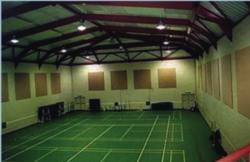Stokvis air-handling units make sports halls multi-functional

To increase the uses to which sports halls can be put, Stokvis Energy Systems has supplied Econo-Air air-handling units for three sports halls in the West Midlands.
Econo-Air air-handling units have been supplied by Stokvis Energy Systems for projects at three schools in the West Midlands to enable the use of sports halls to be increased. Sports halls are increasingly used for assemblies, parents’ evenings, concerts and examinations. Traditionally, their heating systems are designed to achieve 16°C, which is inadequate for many applications. In addition, sports halls often have extensive glazing, leading to high heat gains. Large numbers of people in the hall for events and examinations means that ventilation requirements become as important as heating requirements. On one project, a single Econo-Air 1500C unit has replaced inefficient fan-coil units and helped cut operating costs, while providing excellent heating and ventilation. Consultants were Brandset Associates. At another School, a 1355C unit was specified by Capita Symonds to provide heating and ventilation for a school sports hall which had previously been converted into an open-plan arts studio but which was still experiencing the ineffective heating and poor ventilation normally associated with sports halls. The unit is run overnight in summer to cool the building fabric. The third project uses an Econo-Air unit to overcome the problems of inadequate heating of a sports hall in the winter and excessive heat gain in spring and summer. As well as satisfying the heating requirements, the unit can deliver six air changes an hour to cool the sports hall in hot weather. It can also be run to cool the hall overnight. Consultants were Brandset Associates.
Related links:


